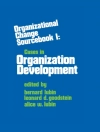A number of books have explored the ways psychotherapy clients can benefit from learning and practicing mindfulness. This is the first volume to focus specifically on how mindfulness can deepen the therapeutic relationship. Grounded in research, chapters demonstrate how therapists’ own mindfulness practice can help them to listen more attentively and be more fully present. Leading proponents of different treatment approaches—including behavioral, psychodynamic, and family systems perspectives—illustrate a variety of ways that mindfulness principles can complement standard techniques and improve outcomes by strengthening the connection between therapist and client. Also presented are practical strategies for integrating mindfulness into clinical training.
Spis treści
I. Theory and Practice
1. Cultivating Therapeutic Relationships: The Role of Mindfulness, Steven F. Hick
2. The Therapeutic Relationship: Central and Essential in Psychotherapy Outcome, Michael J. Lambert and Witold Simon
II. Therapeutic Presence
3. The Four Immeasurable Minds: Preparing to Be Present in Psychotherapy, Thomas Bien
4. Anatta: Self, Non-Self, and the Therapist, Paul R. Fulton
5. Mindfulness and Empathy: A Hermeneutic Circle, Russell A. Walsh
III. Therapeutic Presence in Different Types of Treatment
6. Mindfulness, Values, and Therapeutic Relationship in Acceptance and Commitment Therapy, Kelly G. Wilson and Emily K. Sandoz
7. Mindfulness-Based Relapse Prevention for Substance Abusers: Therapist Training and Therapeutic Relationships, G. Alan Marlatt, Sarah Bowen, Neha Chawla, and Katie Witkiewitz
8. Mindfulness, Metacommunication, and Affect Regulation in Psychoanalytic Treatment, Jeremy D. Safran and Romy Reading
9. Relational Mindfulness and Dialogic Space in Family Therapy, Mishka Lysack
IV. Teaching and Listening
10. Meditation: A Universal Tool for Cultivating Empathy, Shauna L. Shapiro and Christin D. Izett
11. Inviting Therapeutic Presence: A Mindfulness-Based Approach, Diane Gehart and Eric E. Mc Collum
12. Cultivating Mindfulness in Relationship: Insight Dialogue and the Interpersonal Mindfulness Program, Gregory Kramer, Florence Meleo-Meyer, and Martha Lee Turner
13. Mindful Listening for Better Outcomes, Rebecca Shafir
Epilogue, Steven F. Hick and Thomas Bien
O autorze
Steven F. Hick, Ph D, RSW, is Associate Professor in the School of Social Work at Carleton University in Ottawa, Ontario, Canada, where he teaches in the areas of mindfulness, human rights practice, social worker formation, and community development. The author or editor of a number of books, including the leading social work text in Canada, Dr. Hick is at the forefront in the use of mindfulness in social work practice, and has recently begun research on mindfulness. He is cofounder of War Child Canada, a nonprofit organization that helps children affected by war.
Thomas Bien, Ph D, is a psychologist in private practice in Albuquerque, New Mexico, where he teaches mindfulness and meditation. The author or coauthor of several books on mindfulness, Dr. Bien conducts national and international presentations, and has played an influential role in integrating mindfulness into the practice of psychotherapy.












